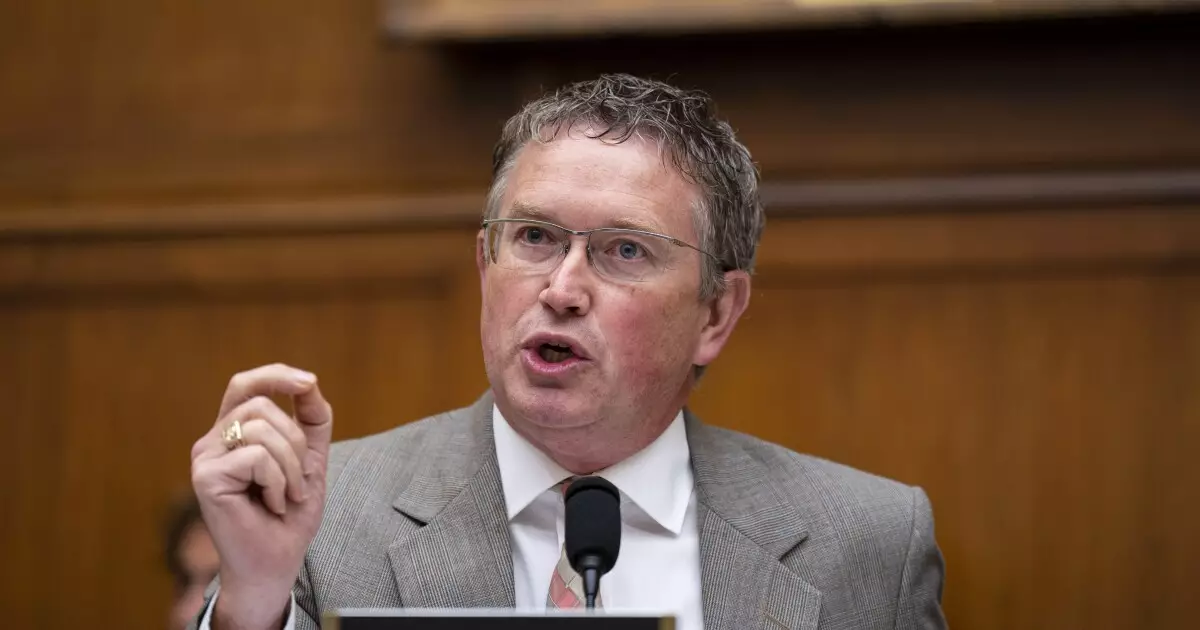House Republicans have recently accused the California Public Employees’ Retirement System (CalPERS) of being involved in a “climate cartel” that collaborates with other investors to push companies to reduce their carbon footprint. This accusation stems from the ongoing scrutiny of environmental, social, and governance (ESG) investment practices by the Subcommittee on Antitrust, Commercial and Administrative Law. The Republicans claim that institutional investors, including CalPERS, are violating antitrust laws in their efforts to combat climate change.
During a hearing, Rep. Thomas Massie, R-Ky., stated that the so-called “climate cartel” is engaging in anticompetitive collusion to impose ESG goals on the American people. He emphasized that noble intentions are not enough to justify potentially harmful practices that could raise prices and lower production. The investigation into ESG investing has also targeted other major financial players like Blackrock, Vanguard, and State Street Global Advisors, alleging that they are working together to decarbonize companies through various means such as shareholder resolutions and board of director votes.
CalPERS has defended its involvement in initiatives like Climate Action 100+, a group focused on reducing emissions, by stating that it is not engaged in collusion but rather collaboration. The fund’s interim Chief Investment Officer, Dan Bienvenue, highlighted that CalPERS’ primary goal is to generate strong returns for its 2.2 million pensioners. Despite advocating for more climate-related disclosure and considering risks in investment decisions, CalPERS continues to invest in oil and gas companies, as part of a diverse portfolio worth nearly $500 billion.
Democrats on the committee have dismissed the antitrust allegations against CalPERS as “embarrassing” and “absurd.” They argue that the focus should be on responsible fiduciary investing and legal shareholder rights, rather than targeting investors who are acting within the bounds of the law. Rep. J. Luis Correa, D-Calif., emphasized that the hearing is not about antitrust violations but rather an attack on ESG investing practices that are essential for long-term sustainability.
In response to claims made by Republicans, Rep. Eric Swalwell, D-Calif., pointed out that while CalPERS reported a return of 6.1% in the last fiscal year, the Teachers Retirement System of Texas only saw a return of 3.85%. This comparison suggests that ESG-focused strategies, like those adopted by CalPERS, can lead to competitive financial performance. Swalwell implied that Texas pension funds could benefit from adopting similar approaches to responsible investing.
Overall, the controversy surrounding CalPERS and ESG investing highlights the ongoing debate between Republicans and Democrats regarding the investment practices of institutional funds. While accusations of collusion and antitrust violations have been raised, CalPERS remains steadfast in its commitment to balancing financial returns with environmental sustainability considerations. As the ESG investing landscape continues to evolve, it is crucial for investors, lawmakers, and stakeholders to engage in constructive dialogue to ensure that investment decisions align with both financial objectives and broader societal goals.

